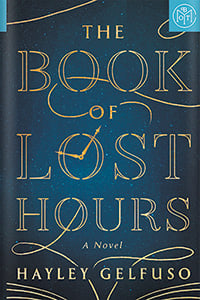

Historical fantasy
Babel
YEARLY LOOK-BACK
by R.F. Kuang
View audiobook
Quick take
Knowledge is power in this potent, Oxford-set tale about the magic of translation and the tumult of revolution.
Good to know
400+ pages
Literary
Brainy
Academic
Synopsis
Traduttore, traditore: An act of translation is always an act of betrayal.
1828. Robin Swift, orphaned by cholera in Canton, is brought to London by the mysterious Professor Lovell. There, he trains for years in Latin, Ancient Greek, and Chinese, all in preparation for the day he’ll enroll in Oxford University’s prestigious Royal Institute of Translation—also known as Babel.
Babel is the world’s center of translation and, more importantly, of silver-working: the art of manifesting the meaning lost in translation through enchanted silver bars, to magical effect. Silver-working has made the British Empire unparalleled in power, and Babel’s research in foreign languages serves the Empire’s quest to colonize everything it encounters.
Oxford, the city of dreaming spires, is a fairytale for Robin; a utopia dedicated to the pursuit of knowledge. But knowledge serves power, and for Robin, a Chinese boy raised in Britain, serving Babel inevitably means betraying his motherland. As his studies progress Robin finds himself caught between Babel and the shadowy Hermes Society, an organization dedicated to sabotaging the silver-working that supports imperial expansion. When Britain pursues an unjust war with China over silver and opium, Robin must decide: Can powerful institutions be changed from within, or does revolution always require violence? What is he willing to sacrifice to bring Babel down?
Read a sample
Get an early look from the first pages of Babel.
Why I love it
Brianna Goodman
BOTM Editorial Team
Every book lover knows words have power: the power to make you laugh, teach you something new, or make you ugly cry on a park bench. But what if words had power literally? What if uttering the right syllables could cure illness or turn you invisible? Would a world in which words held such power be a better world, or would that power inevitably be corrupting?
These are just some of the questions posed in Babel, R.F. Kuang’s magnificent fantasy epic set in 19th-century England. The novel stars Robin who, after being taken from his home in China, is sent to the prestigious translation institute at Oxford University. There, he learns about silver-working, a method that harnesses the powers of translation to create magical effects. But as Robin uncovers the ways the British Empire uses this power, he is soon torn between pursuing the academic life set out for him and joining forces with an underground organization working against the institute.
We have a tradition here at Book of the Month every December: to reflect on books we didn’t feature from earlier in the year and choose one to highlight as our “yearly look-back” selection. This year, we knew it had to be Babel, a book so special I’m still thinking about it months after I first read it. For anyone seeking a whip-smart novel that boasts great fantasy world-building with the storytelling flare of a 19th-century novel, this will be a decadent, mind-expanding treat.






